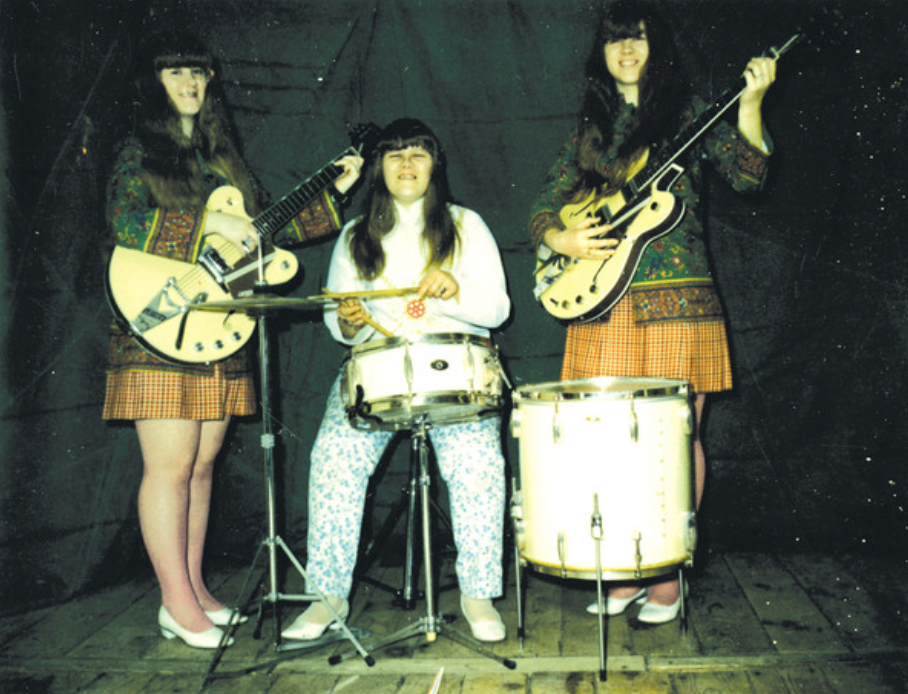Outsider Music: Beyond Alternative
In a world where music is boxed into genre upon genre, what happens to the sounds that are so far away from the mainstay that they exist in a realm of their own?
In 2000, Irwin Chusid released Songs In the Key of Z, a book and compilation album exploring the field of what he coined as “outsider music”. Chusid defined outsider music as “crackpot and visionary music, where all trails lead to essentially one place: over the edge.”
The thing about outsider music that makes it truly unique is that it does not try to be innovative. There is no conscious effort to create an unorthodox sound. It consists of unconventional rhythms, nonsensical lyrics, off-key singing, and shoddy instrumentation.
You may be wondering, why would I want to listen to music that is being described as amateurish? Well, while outsider musicians are often classified as bad or inept by typical musical standards, the beauty of outsider music lies in the earnestness of the people who make it.
Unlike artists that strive to push boundaries to create bizarre or experimental music, outsider musicians are unintentional in their work. It is so organic that it cannot be replicated. This concept fascinates me in a music industry dominated by corporate-controlled and often sterile sounds, designed to make it onto Billboard Charts.
Another thing to note is that outsider music develops naturally from a variety of factors that more often than not, stem from dark, tragic, or absurd pasts. Childhood trauma, mental illness, incarceration, and drug abuse are common fuels for this type of music.
I think it’s time to dive into some examples of outsider musicians. It’s difficult to grasp this concept without hearing it for yourself.
Without a doubt, Daniel Johnston is the most well-known outsider musician to date. Despite battling with chronic mental illness throughout his life, Daniel Johnston has paved an influential music career that began with handing out his first homemade cassette recording at the local McDonalds. His narrative primarily covers the topics of unrequited love, the frustration of miscommunication, his favourite comic-book characters, and his undying love for the Beatles. He sings with a monotone voice, accompanied by rudimentary guitar and piano playing. Johnston’s signature, and probably most accessible song is “True Love Will Find You at The End”, a ballad displaying his ability to write vulnerable and humorously tragic lyrics.
This wouldn’t be a true article on outsider music if I didn’t tell the story of The Shaggs.
When Austin Wiggins Jr. was a young boy, his palm-reading mother made a prediction that in his adulthood, he would have children that would go on to form a popular music group. When he and his wife had three daughters in the 60s, he did what every good parent would do: he pulled them out of school, gave them cheap instruments, and bought the studio space in their hometown of Fremont, New Hampshire. With absolutely no prior music experience, the trio became known as The Shaggs. They released their first album, Philosophy of the World, in 1969.
As a ukulele shredder myself, Tiny Tim is an essential mention. He’s most widely known as a one-hit-wonder for his song “Tip Toe Through The Tulips”. You might also recognize Tiny Tim for his falsetto singing voice and long, scraggly hair. Although considered an outsider musician, he managed to achieve mainstream success!
Next is a musician whose high praise of Canada landed her on the map. B.J. Snowden is an American music teacher whose errr…diverse repertoire includes songs about every Canadian province, Santa Claus, the 9/11 tragedy, and the baseball player Daisuke Matsuzaka. Her childlike style could be described as Dr. Seuss-esque, using repetitive lyrics backed with pre-set keyboard drums and melodies. Her life was centred around garnering international acclaim, and while she initially hated the “outsider music” label, she changed her mind as the press coverage began rolling in.
With this article, I encourage you to explore the beautifully unusual world of outsider music. There are so many awe-inspiring backstories to uncover as you continue to learn about these musicians. To get you started, check out this playlist that will introduce you to the outsider artists that embody full creative freedom.
HEADER IMAGE SOURCE: TIANA LAM


